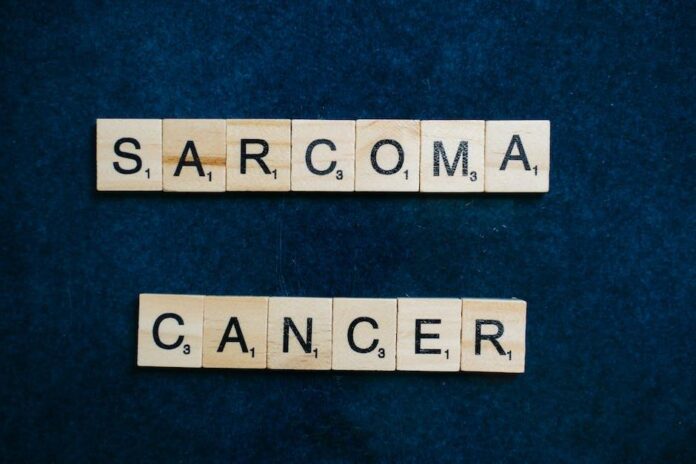
Kaposiʼs sarcoma is a type of cancer that can affect the skin, lymph nodes, and other organs. It is caused by a type of herpes virus known as Kaposiʼs sarcoma-associated herpesvirus (KSHV). The most common form is often seen in people who have weakened immune systems, such as those with HIV/AIDS. It is important to be aware of the symptoms of Kaposiʼs sarcoma so that it can be diagnosed and treated early.
In this article, we will discuss the various symptoms of Kaposiʼs sarcoma and how they can manifest in different parts of the body. If you or someone you know is experiencing any of these symptoms, it is important to seek medical attention as soon as possible.
Lesions on the Skin
One of the most common symptoms of Kaposiʼs sarcoma is the appearance of lesions on the skin. These lesions typically develop on the legs or face and can vary in color from pink to dark red or purple. The lesions may be flat or raised, and they can cause itching or pain. In some cases, the lesions may also ulcerate or bleed.
If you notice any unusual spots or growths on your skin, it is important to have them examined by a dermatologist. While not all skin lesions are indicative of Kaposiʼs sarcoma, it is important to rule out this possibility, especially if you have a weakened immune system.
Swelling in the Lymph Nodes
Kaposiʼs sarcoma can also cause swelling in the lymph nodes, particularly those in the groin, armpit, or neck. This swelling may not be painful, but it can be noticeable and may be a sign of an underlying issue such as cancer. If you notice any lumps or swelling in your lymph nodes that do not go away, it is important to see a doctor for further evaluation.
In some cases, Kaposiʼs sarcoma can also affect the lymphatic system, leading to swelling in the arms or legs. This swelling, known as lymphedema, can be painful and may also cause a feeling of heaviness or tightness in the affected limb.
Difficulty Breathing
In advanced cases of Kaposiʼs sarcoma, the cancer can spread to the lungs, causing symptoms such as difficulty breathing, coughing, and chest pain. This can occur if the cancer cells block the blood vessels or lymphatic channels in the lungs, leading to a condition known as pulmonary Kaposiʼs sarcoma.
If you are experiencing any of these symptoms, it is important to see a healthcare provider as soon as possible. Difficulty breathing can be a sign of a serious underlying issue, and early diagnosis and treatment are crucial for managing Kaposiʼs sarcoma.
GI Symptoms
Kaposiʼs sarcoma can also affect the gastrointestinal (GI) tract, leading to symptoms such as nausea, vomiting, abdominal pain, and diarrhea. In some cases, the cancer may cause bleeding in the GI tract, which can lead to symptoms such as dark, tarry stools or blood in the stool.
If you are experiencing persistent GI symptoms, it is important to discuss them with your healthcare provider. While these symptoms may be caused by a variety of issues, it is important to rule out Kaposiʼs sarcoma, especially if you have other risk factors for the disease.
Chronic Fatigue
Many people with Kaposiʼs sarcoma also experience chronic fatigue, which can significantly impact their quality of life. This fatigue may not improve with rest and can make it difficult to carry out everyday activities. If you are feeling unusually tired or run-down, it is important to discuss this symptom with your healthcare provider.
In some cases, chronic fatigue may be a sign of an underlying medical issue, and it is important to undergo a thorough evaluation to determine the cause of your symptoms. Early diagnosis and treatment are key for managing Kaposiʼs sarcoma and improving your quality of life.
Conclusion
In conclusion, Kaposiʼs sarcoma can cause a range of symptoms that can impact different parts of the body, including the skin, lymph nodes, lungs, and GI tract. If you are experiencing any of these symptoms, it is important to seek medical attention as soon as possible. Early diagnosis and treatment can make a significant difference in managing Kaposiʼs sarcoma and improving your quality of life.

















